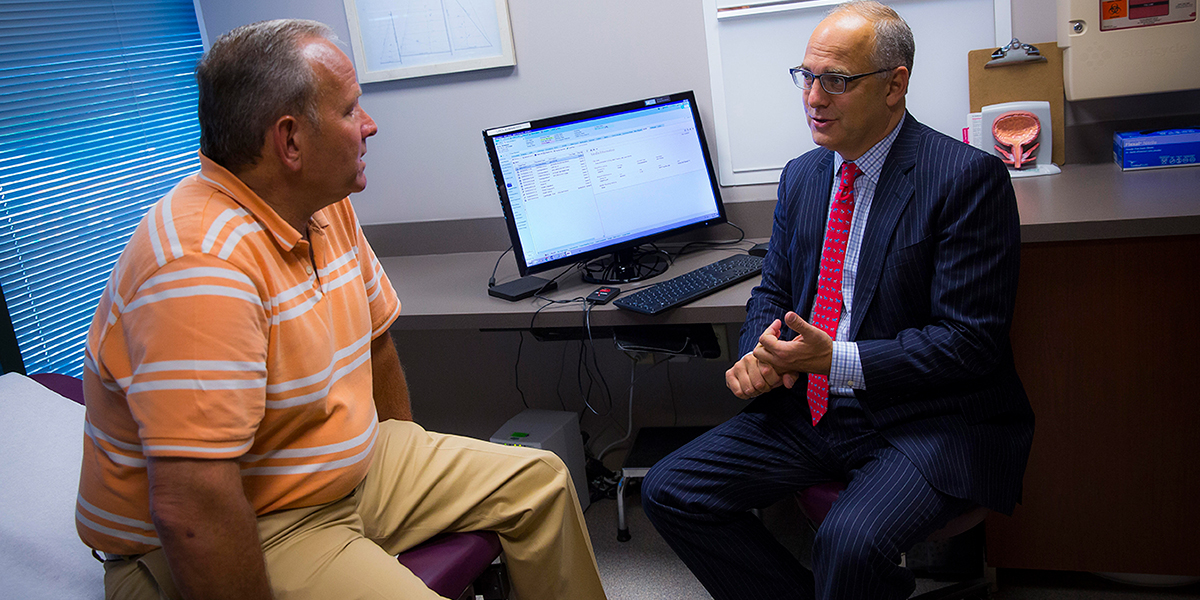Urologists Return to PSA Prostate Cancer Screenings with Improved Protocols
Evolved Surveillance Criteria Help Detect Early Stage Prostate Cancers

Physicians are rethinking prostate cancer screening recommendations after an increase in the incidence of metastatic prostate cancer and more aggressive, higher-grade cancers at detection.
In 2008 and 2015, the U.S. Preventive Services Task Force (USPSTF) recommended against routine prostate-specic antigen (PSA)-based prostate cancer screenings because these routine screenings led to unnecessary prostate biopsies and treatments. However, in the ensuing years, studies have shown an increase in metastatic prostate cancer rates, including a dramatic increase in the diagnosis of distant metastatic prostate cancer. These findings suggest, as screening and biopsy rates declined, prostate cancers have been detected later when they have already metastasized and, in some cases, metastasized beyond the pelvis where they become harder to treat.
The leading urologists at the Hackensack University Medical Center are recommending a return to PSA screenings with additional tools and protocols that will enhance early detection while preventing unnecessary biopsies.
“Today, MRIs and biomarkers are being used routinely to help us determine which patients need a biopsy and which do not” said Michael Stifelman, M.D., Professor and Chair of Urology, Hackensack University Medical Center. “We now have research-validated active surveillance criteria and protocols that balance the risk of unnecessary treatment with the risk of developing worsening disease. We understand that prostate cancer is not a binary disease but a spectrum requiring careful risk stratification.
An increased understanding of PSA screening results has also given physicians the ability to determine whether a patient is likely to develop prostate cancer in the future. For example, urologists now know that if a patient has a PSA level of 1.0 or less at age 60, there is minimal chance that they will develop prostate cancer in their lifetime. However, a patient with a PSA level of 3.0 at age 60 has a 12 percent chance of developing prostate cancer in the future.
“The statistical likelihood of developing prostate cancer based on PSA levels and age can guide shared decision-making conversations between physicians and their patients,” said Nitin Yerram. “A return to PSA prostate cancer screenings today will provide patients with the best chance of receiving an early diagnosis with minimal risk of overtreatment.”
